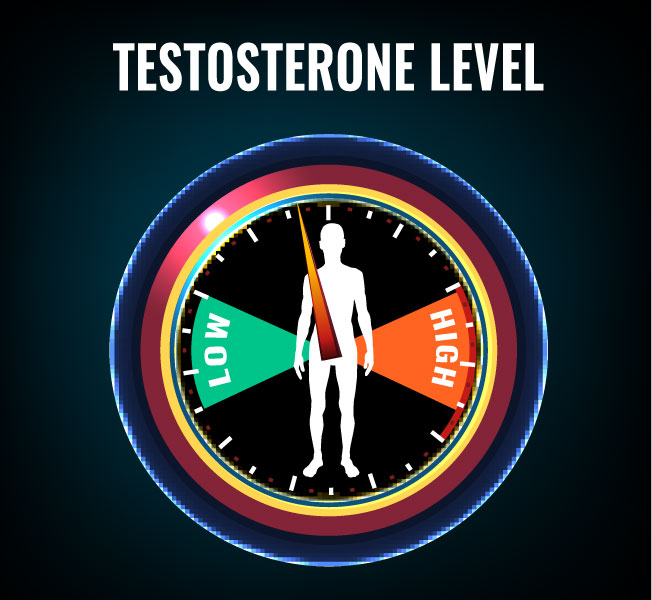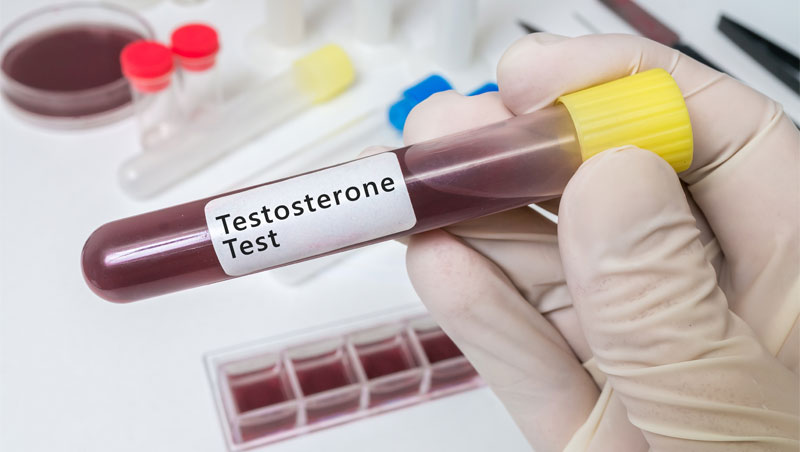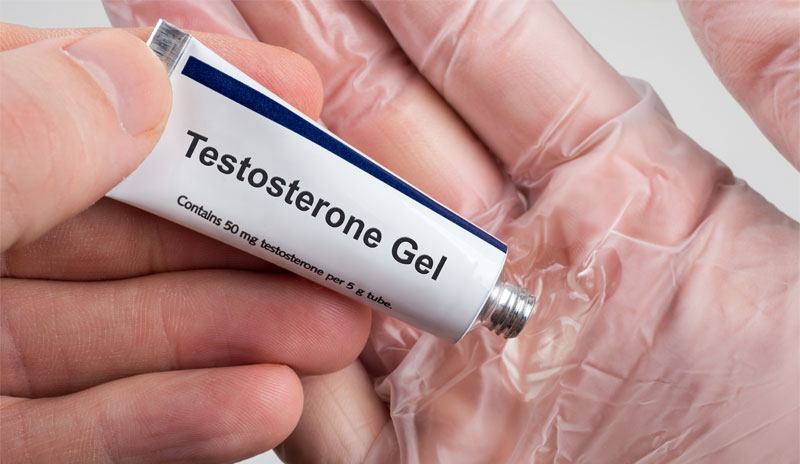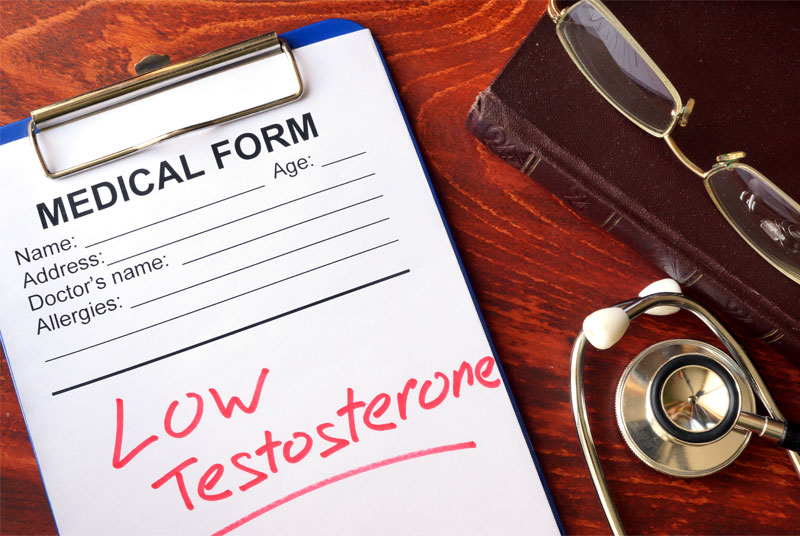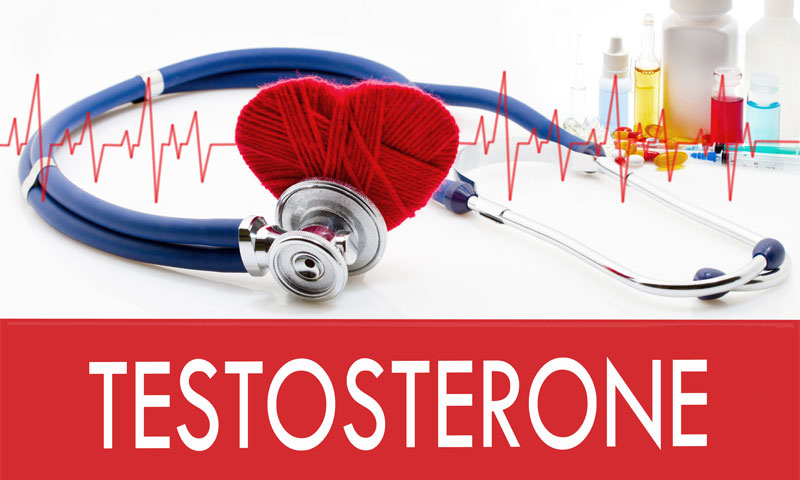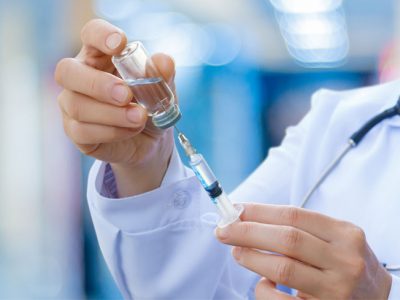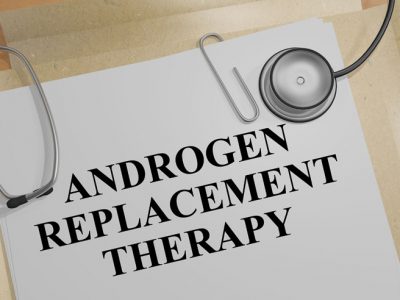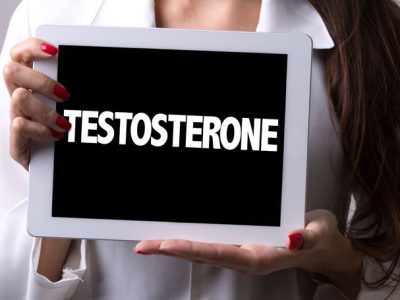- Home
- Growth Hormone
- Growth Hormone
- Growth Hormone Deficiency
- Growth Hormone Therapy
- Growth Hormone Injections
get startedThe Most Effective Hormone Replacement TherapiesMost Men Over 35 Have Low Testosterone
- Testosterone is vital to your strength, vitality, and overall wellbeing.
- Testosterone levels drop as you age.
- Most men over 40 will experience the symptoms of low testosterone, also known as “Low-T” to some degree.
Testosterone is vital to your strength, vitality, and overall wellbeing. However, you produce less testosterone the older you get. As your testosterone level drops, so does your confidence and self-esteem.
When it comes to the production of testosterone, most men hit their peak around the age of 17. Levels will hover pretty close to that maximum through your 20s, and then slowly start to drop-off in the 30s and 40s. By the time you are in your 80s, you can expect that your testosterone level will be as much as 50% less than what it was when you were in your 20s.
Some men can handle declining testosterone very well, and the drop in production does not impact their lives too greatly. But for most men, as you hit your 50s, 60s and older, you may start to feel the impact of Low-T. It may not be noticeable at first, you may think that feeling a little low, or more tired, or depressed, is just sign of “getting older.” But in reality, what you are experiencing could be low testosterone.
Symptoms of Low-T include:
- Tiredness
- An overall sense of loss of drive, or vitality
- Mood swings
- Erectile dysfunction and other sexual issues
- Loss of energy
- Loss of muscle tone and increased belly fat
- Memory and other cognitive issues
- Decrease in beard & body hair
If you are between the ages of 35 and 65, and are feeling 2 or more of the above, there is a very good chance that low testosterone is the reason.
However, the only way to know if Low-T is at the root of your symptoms, is with a thorough examination and proper diagnostic testing.
The most accurate way to evaluate your hormone levels is with a blood test. Although saliva swab tests are used by some healthcare providers, blood tests provide a much more accurate result, and are the best way to determine whether testosterone therapy is medically indicated.
Once your blood is drawn, sophisticated laboratory testing is then used to accurately determine whether your hormone levels are normal or have become deficient.
Testosterone is vital to your strength, vitality, and overall wellbeing. However, you produce less testosterone the older you get.
Diagnosis and Testing for Low Testosterone
Before you can begin any kind of testosterone therapy, you must have your testosterone levels completly evaluated. The only way to determine if you have low testosterone, is with proper diagnosis and testing. The first step is a blood test.
Your blood test will confirm if hormone therapy should be prescribed for you. Some testosterone clinics use saliva tests, because they are cheaper and easier to do. However, the most professional testosterone doctors only use blood tests, which are way more accurate. Blood tests will also give your healthcare provider an overall picture of all of your hormones. You may need additional hormone therapies beyond testosterone. For example, many patients suffering from Low-T, may also benefit from growth hormone therapy. The combined effect of both replacements often results in the maximum benefit and sometimes amazing results.
Remember, what is normal for you, may be different for someone else, and that is why it is important you seek hormone replacement therapy (HRT) from a provider who is experienced in tailoring HRT to your individual needs.
Your testosterone levels peak in your 20s. After that it slowly starts to drop-off in the 30s and 40s. By the time you are in your 80s, you can expect that your testosterone level will be as much as 50% less than what it was when you were in your 20s.
What Is Testosterone Replacement Therapy?
If you are found to have low testosterone, you may benefit from testosterone replacement therapy. Testosterone therapy is a safe and effective way to replace what time takes away.
Testosterone therapy can be given to you in a number of ways, including: hormone replacement pellets, injections, skin-patches, creams, lozenges, or any combination thereof. You and your doctor will decide together which delivery method is best for your needs and lifestyle. Injection therapy is however, the most effective method of administration of testosterone replacement.
Testosterone therapy is designed to make you feel younger, stronger, and improve your confidence, so you can continue to do all the things you enjoy most in life.
In general, the symptoms of low testosterone, or Low-T affect three areas of your life:
- Mental health
- Physical health
- Sexual health
The typical symptoms of below normal testosterone levels include:
- Low energy, fatigue or weakness
- Declining libido, sexual desire, or erectile dysfunction
- Lack of enthusiasm, drive or motivation
- Anxiety, and/or depression
- Loss of figure or muscle tone
- Reduced bone density (osteoporosis)
- Poor focus or concentration, memory issues
A program of bioidentical testosterone therapy can have you looking and feeling like you are many years younger.
What Are Bioidentical Hormones?
The safest and most effective testosterone therapy uses “bioidentical hormones.” Bioidentical hormones are exact duplicates on the atomic and chemical level as your “real” hormones. Created from all natural sources, bioidentical hormones are a safer and more effective form of testosterone therapy. Hormone therapy with bioidentical hormones usually has a lower risk of most of the negative side effects associated with their synthetic counterparts.
Bioidentical testosterone therapy is often prescribed for sexual wellness issues such as loss of libido and erectile dysfunction, also known as ED. Testosterone therapy has a positive effect on men who have been experiencing a decreased sex drive and performance issues.
In addition to increasing the libido, bioidentical testosterone therapy also:
- Encourages heart health
- Helps prevent osteoporosis by improving bone density
- Fights fat
- Increases muscle strength
- Improves mood
- Improves sleep
- Improves focus and cognition
What Are the benefits of Testosterone Therapy for Men?
The benefits of testosterone therapy for men with Low-T have been well documented. In addition, there have been many recent studies that have indicated that many of the perceived risks of testosterone therapy have been unfounded. In the early days of testosterone therapy, it was reported that testosterone therapy could increase the risk of heart disease and some cancers.
Recent studies have not only said that men on testosterone therapy have no such increased risks, but that in some cases, testosterone therapy may even prevent heart disease and lengthen lives!
In addition, other benefits of testosterone therapy include:
- Increased strength and stamina
- Better sleep
- Improved sexual function
- Improved ability to build lean muscle
- Improved ability to lose fat, particularly belly fat
- Renewed energy and motivation
- Improved cognitive abilities
- Improved mood and emotional stability
Low Testosterone and Women
When you hear the words “testosterone,” or “testosterone therapy,” what comes to mind? Men’s heath most likely. But did you know that women’s bodies also produce and need testosterone, and sometimes, they too can benefit from testosterone therapy?
Jane Fonda can sometimes be regarded as a bit of a controversial figure, but at 80, no one can deny that she looks tremendous!
Jane, like similar hormone therapy advocate, Suzanne Somers, also says that she still enjoys an active love life, but she found that “lately she needed a little help in that department.” Ms. Fonda openly, and proudly admits that she has been receiving testosterone therapy for the past few years, and in a very candid interview she said, "If you want to remain sexually active and your libido has dropped, taking a small dose of the libido-boosting hormone, testosterone, makes a huge difference."
Jane is absolutely right. For many years the medical community thought that the “bedroom troubles” that women encounter as they get older, were primarily due to decreasing levels of the "female" hormones, progesterone and estrogen.
However, more recent research indicates that it is actually low levels of testosterone and not estrogen that is largely responsible for the loss of libido and lack of sensitivity that women develop as they approach and enter menopause. Current research also seems to suggest that declining testosterone levels in women as they age plays a role in weight gain, cognitive difficulties and loss of bone density and muscle tone.
Women and Testosterone
Though considered a “male sex hormone,” or androgen, testosterone is produced by women’s bodies in the ovaries, adrenal glands and fat cells. Testosterone is important to a woman’s reproductive health, and actually has over 200 different functions in women.
Contrary to what was once believed, according to more recent studies, there is little evidence that testosterone increases the risk of breast cancer. In fact, there is mounting evidence that it may even decrease a woman’s risk.
Clinical studies published in respected peer-reviewed medical journals have concluded that a small increase in the testosterone levels in menopausal and post-menopausal women can boost libido, improve the ability to become aroused, and increase the frequency and intensity of orgasms.
It has also been found that low levels of testosterone plays a significant role in sexual wellness complaints in women of all ages. Studies have found that giving even a low dose of testosterone to such women increases desire, has them “thinking about sex more often,” and boosts mood, while providing an improved sense of overall wellbeing.
Beyond the bedroom, other studies have found that low-dose testosterone therapy increases mental acuity and cognition in women.
Are You Ready?
Are you ready to be the best version of yourself? If you are a man or woman suffering the symptoms of low testosterone, testosterone replacement therapy can be life changing!
Have you found that you have had to give up the things that you love in life? Testosterone therapy can put you back on track to a stronger, healthier, more vital you!
It’s time to be proactive and do this for yourself. It may be the difference you’ve been looking for.
Stop missing out on life, and contact us today!
Testosterone is important to a woman’s reproductive health, and actually has over 200 different functions in women.
read this next
How do I get a prescription for Testosterone injections?
Testosterone replacement therapy is used to treat both men and woman who are exhibiting the symptoms of low testosterone. While testosterone injections can be…read moreWhat Are Free Testosterone Levels?
What are free testosterone levels? When the testosterone hormone in both men and women is not bound to any proteins in the blood, this…read moreTypes of Testosterone Therapy
Are you considering testosterone therapy? Did you know there are different types of testosterone therapy for men? We break down the different kinds of…read moreWhat are the Signs and Symptoms of Low Testosterone?
Anyone over the age of 35, man or woman needs to be familiar with the signs of low testosterone. When you hear about testosterone,…read more - Growth Hormone Therapy








